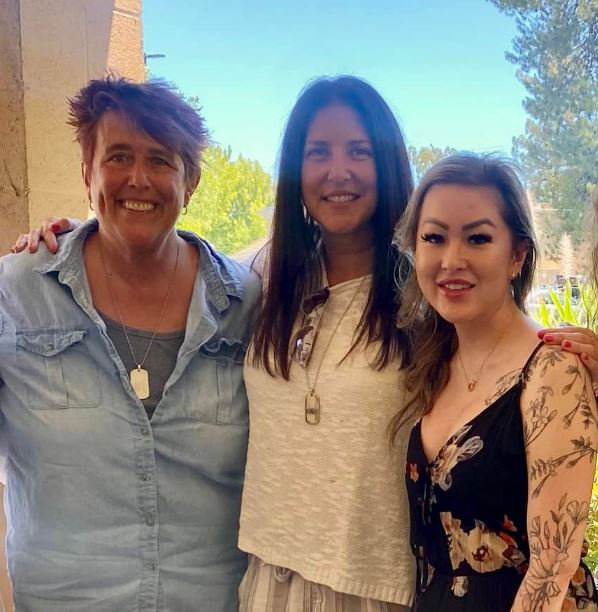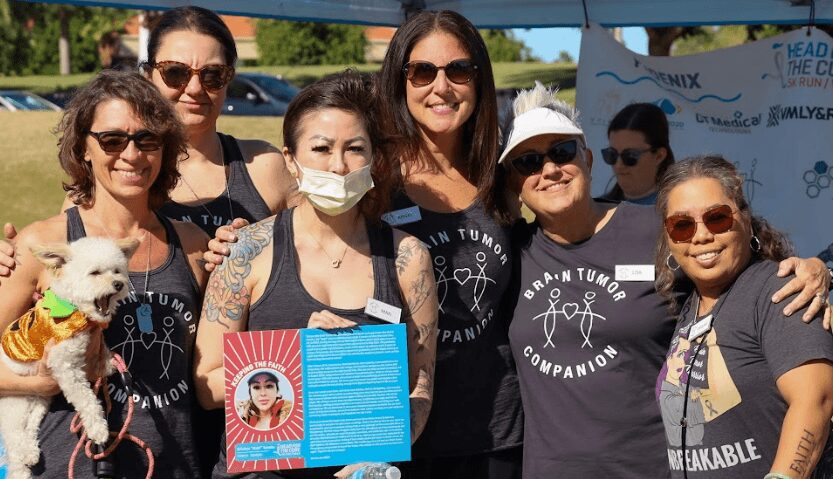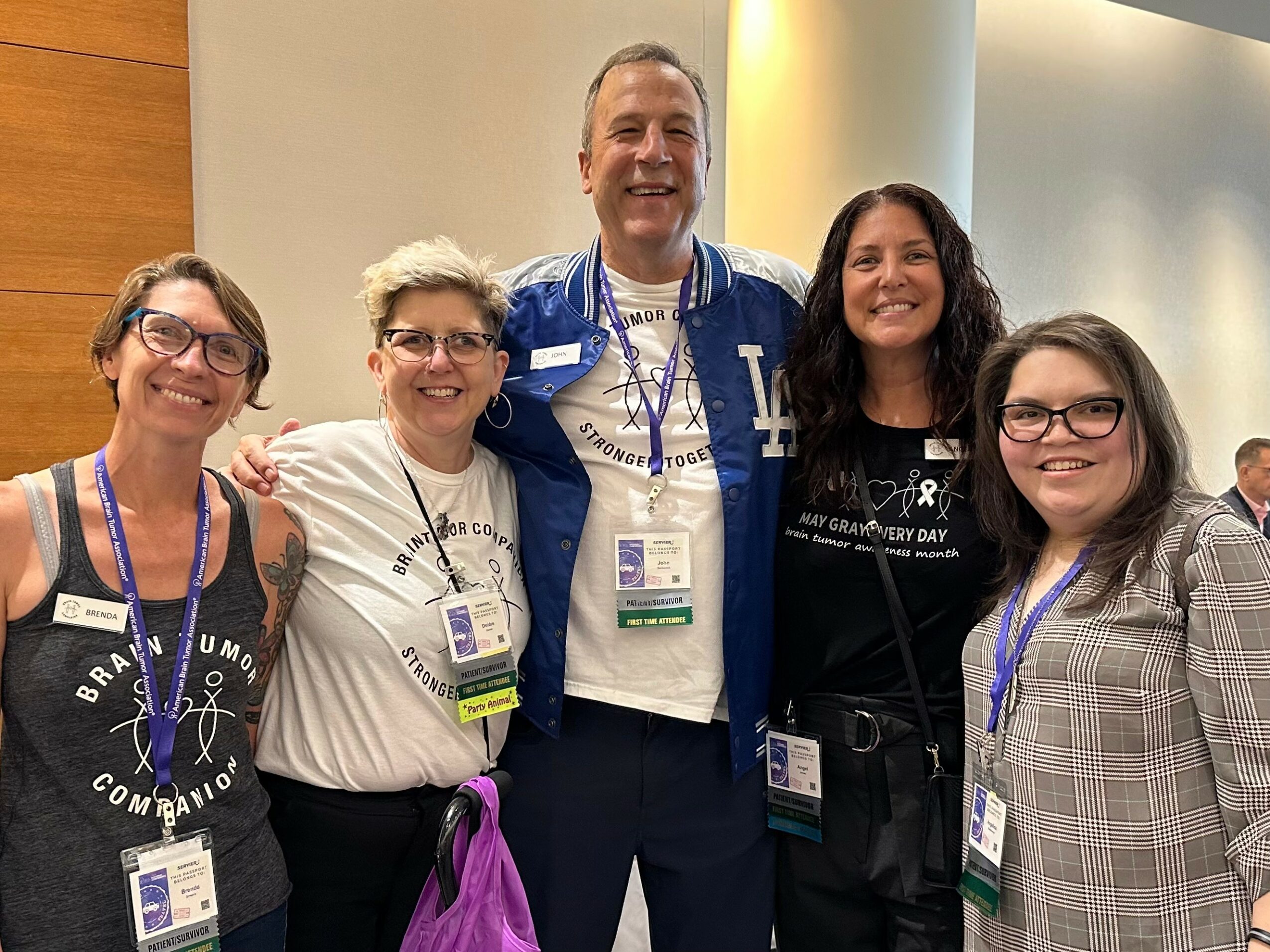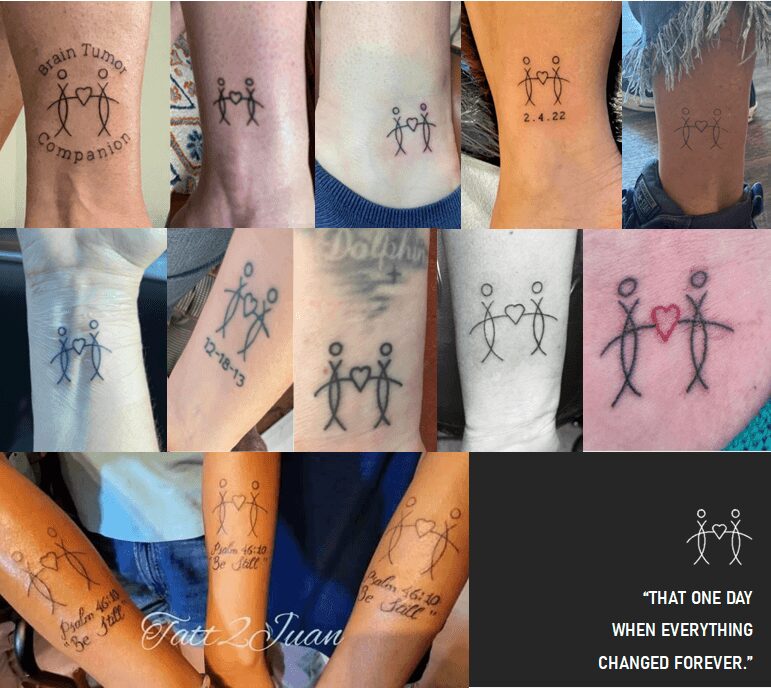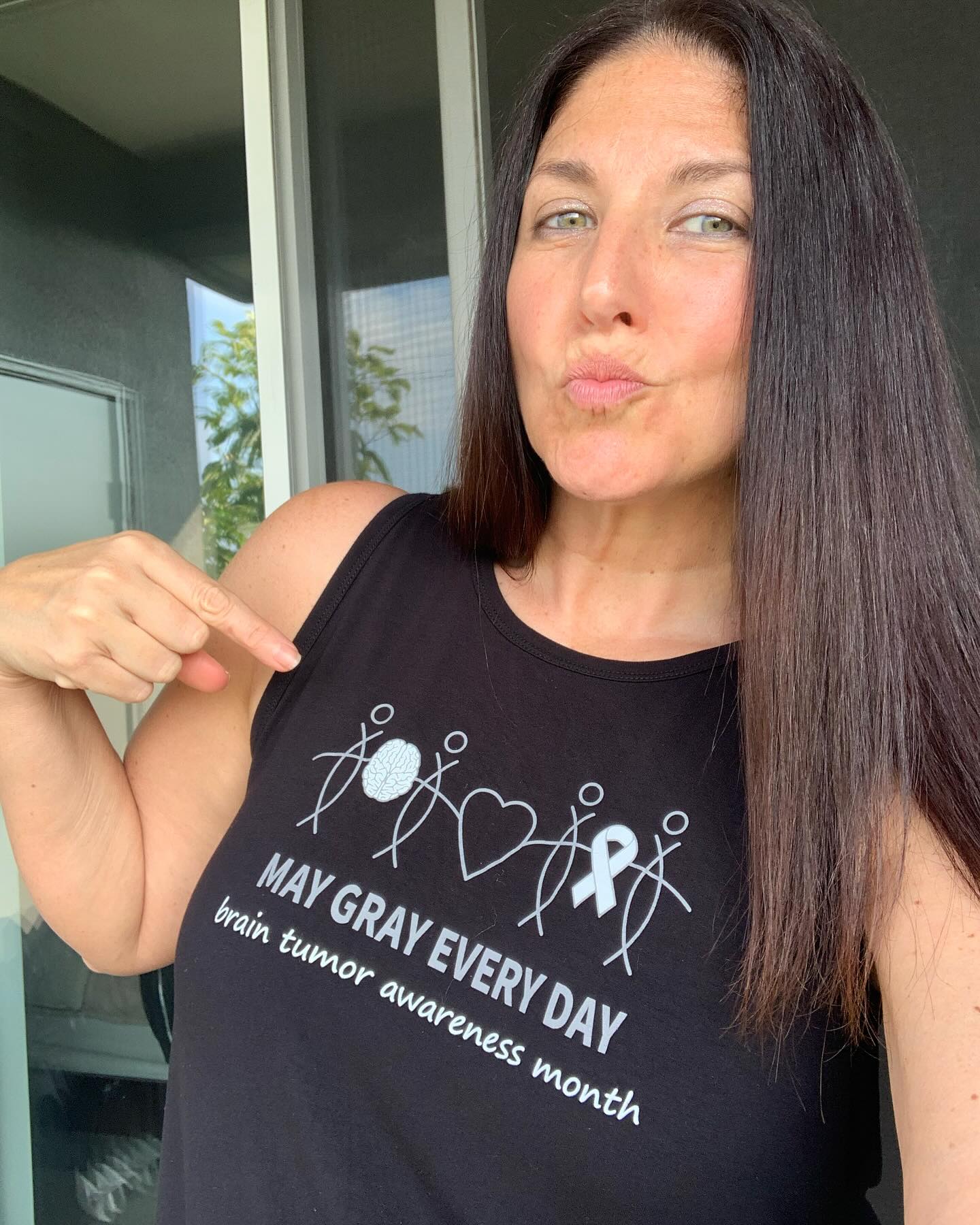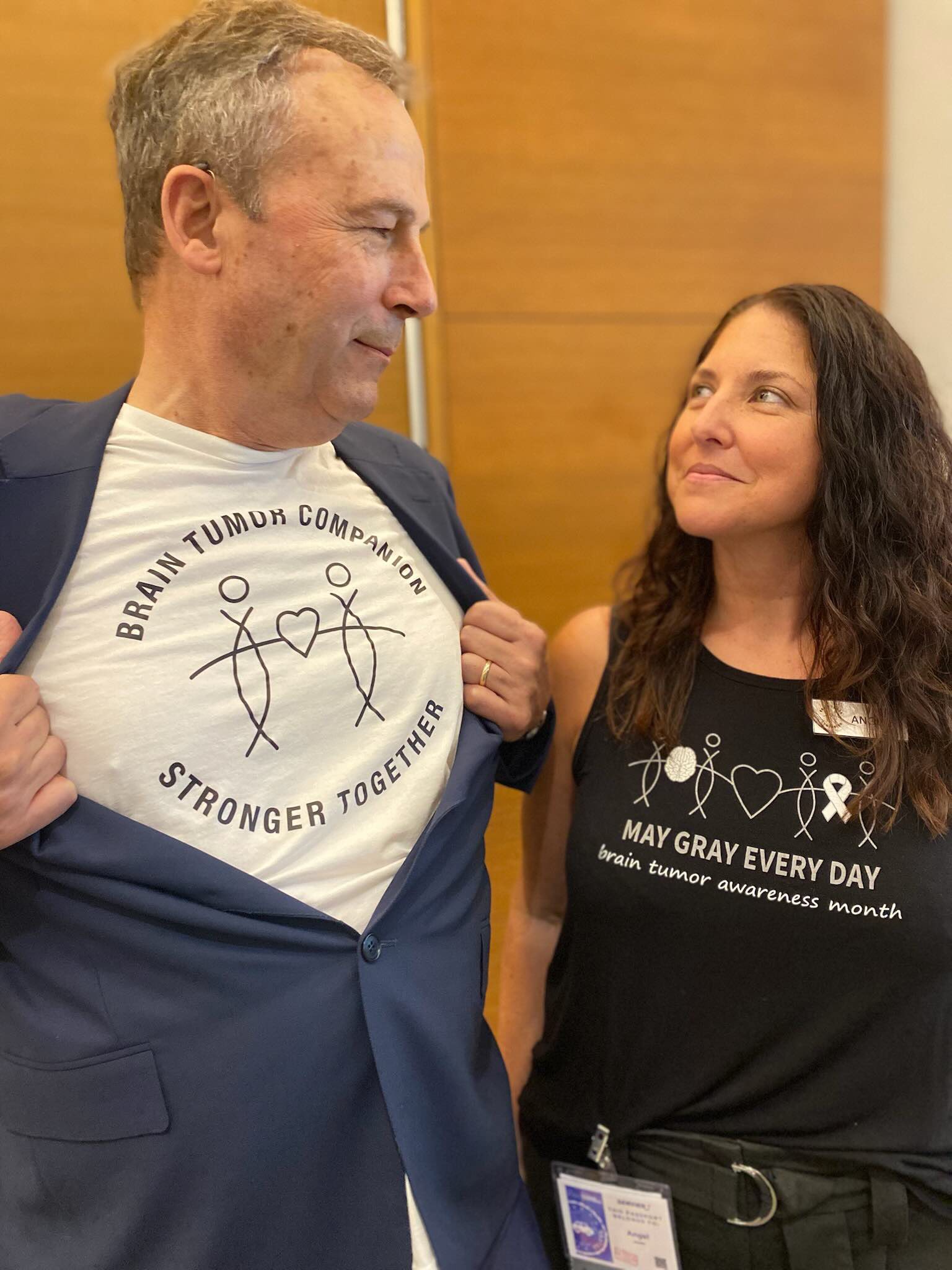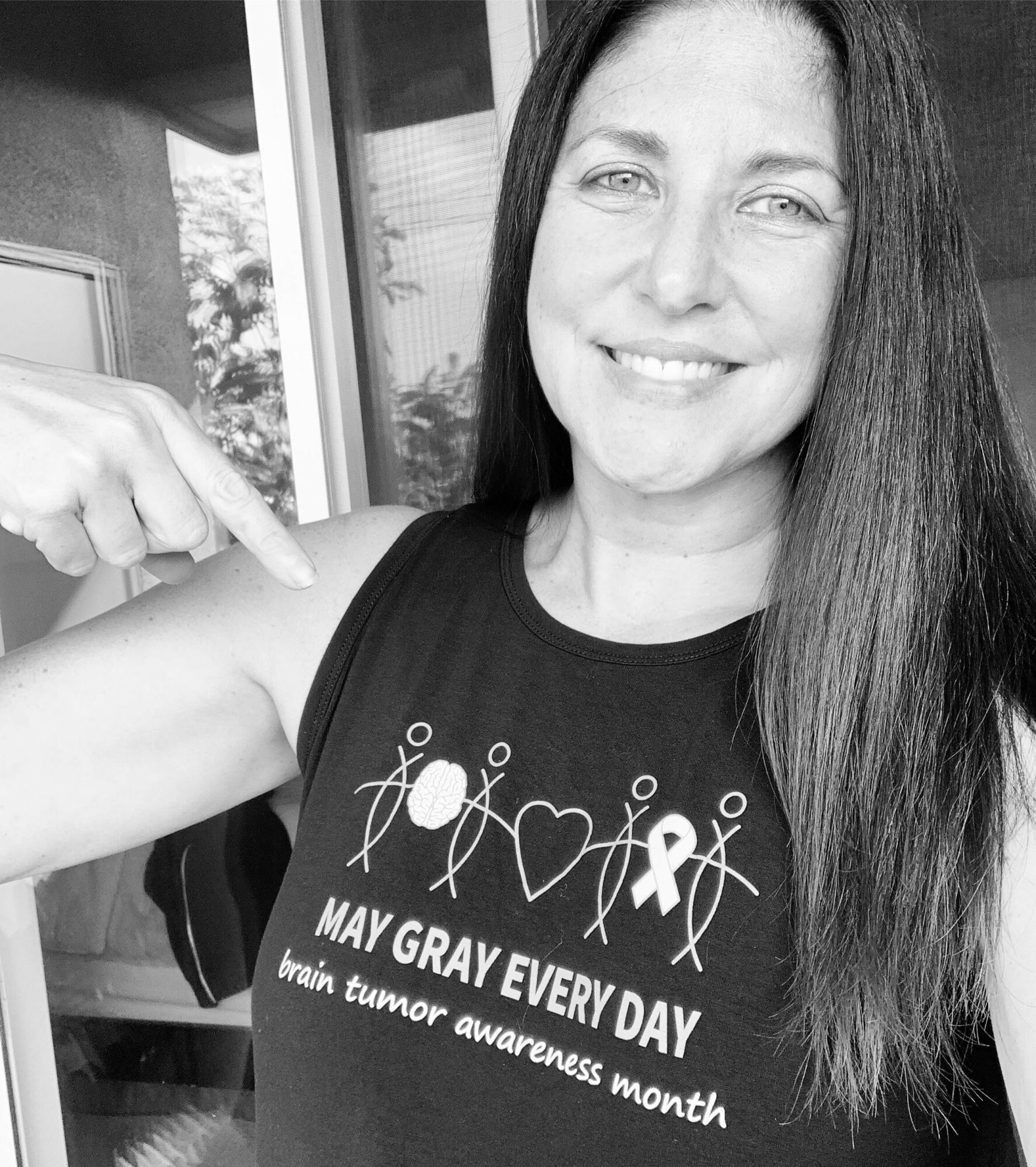

Today we’d like to introduce you to Angel Jones.
Hi Angel, thanks for joining us today. We’d love for you to start by introducing yourself.
My Journey
In March 2013, I was involved in a car accident in the Beverly Hills, CA area where I was rear-ended and suffered a severe concussion. As part of my evaluation, I underwent a brain MRI with contrast to rule out a brain bleed or other complications from the accident. Unexpectedly, the scan revealed a small 8mm meningioma, a benign brain tumor. That moment marked the beginning of my journey.
For six years I remained on “watch and wait” until my doctors advised that I undergo a craniotomy. In December 2018, I had the surgery, which seemed crazy to me since I never had any symptoms. My life changed in many ways afterward, not necessarily for better or worse, but simply different. I felt different. I spoke differently. Even my thinking seemed altered. Those changes made me realize how much I needed community, people who understood what I was going through, who were equally confused, and who were searching for answers.
Education about my condition became my personal mission. Initially, I created Meningioma Companion because I assumed only others with meningiomas would want to connect with me. During the pandemic, September of 2020 I launched a peer-to-peer Zoom platform bringing together people from Los Angeles, across the United States, and around the world to discuss their brain tumor diagnoses and experiences.
This community has grown into something beautiful. It provided exactly what I needed to make sense of my own journey and, in the process, became a non-profit organization dedicated to supporting others. Out of this lifelong, life-altering diagnosis came something profoundly positive, a space for connection, understanding, and hope that I will continue to nurture for as long as I live.
Would you say it’s been a smooth road, and if not what are some of the biggest challenges you’ve faced along the way?
As with anything meaningful, there have been many struggles. Being a brain tumor patient is already a challenge, but building this community came with its own set of obstacles. I faced resistance from larger institutions that did not understand or believe in what I was trying to do. When I offered my services, some perceived it as “recruiting their patients” and responded defensively. I was even removed from some leading social media brain tumor groups simply for trying to connect with people offline during a pandemic!
Despite the challenges, I built this community myself, from the ground up, because I needed it. Every penny came out of my own pocket initially. For the first four to five years, and still to this day, I am always investing in it with time and money. Many people don’t see that reality. They assume these kinds of projects come easily, or that they should be free, or that they’re just “hobbies.” But with over 15 years of medical administration background as well as over a decade in retail management, I brought business acumen and determination to ensure that Brain Tumor Companion was built correctly from the very beginning.
That meant investing in every step: creating a website and database, maintaining a Zoom platform, building a brand, developing merchandise and a shop, raising awareness, creating monthly newsletters, having multiple social media pages and a YouTube page, writing patient advocacy letters, offering one-on-one support, and responding to messages at all hours, sometimes at two, three, or four in the morning from people locally as well as across the country and around the world. I’ve carved out time to travel, attend events, meet my members, and make nice with neuro teams to build a referral base for us patients. In 2023 we raised over $20,000 for the USC Brain Tumor Center and they thanked us by hosting an intimate brain tumor educational luncheon right here in the Culver City area. It has been a lot of work, exhausting work, but also deeply rewarding.
Through all of this, I’ve gained confidence I never thought I would have while living with this condition. I have endured criticism, being accused of trying to “steal money, from cancer patients” being told I was “running a cult,” or being denied collaboration because I lacked someone else’s “mentor” or “life coach” certification. End of day, I’m a patient, I am well educated, I have been working since I was nine years old, and I am more than capable of professionally leading a peer support group and serving as the CEO of a nonprofit. This platform, is not only the gift I give myself but also the gift I give to others: a roadmap, a place to belong, and a space to bring our struggles, laughs, tears, fears, and wins!
The journey has not been easy, and I still face resistance to this day, but my goal is always to meet it with grace. For me, collaboration is essential in the brain tumor community. We need our medical teams, social workers, neuro-oncologists, neuro-ophthalmologists, neurosurgeons, neurologists, therapists, and support group leaders working together. We are more alike than we are different, and it is vital that we come together rather than create roadblocks and resist each other.
Thanks for sharing that. So, maybe next you can tell us a bit more about your work?
I have been working for as long as I can remember. By the age of 18, I was offered a management position in a retail store and from that point forward leadership became a defining part of my life. I naturally stepped into roles of guidance and support. Leadership, management, and mentorship have always been central to who I am.
What I value most about my leadership style is that it is grounded in compassion and understanding. While I can be direct and straightforward, people always know where they stand with me. That clarity in communication has helped me excel in everything I do. I don’t run from confrontation, I truly believe that for every problem their is a solution, even it that solution is accepting that which we cannot change.
As an administrative leader in the medical field, I spent eight years working at a cancer center in Beverly Hills and have recently dedicated nearly nine years as an Executive Director at a mental health facility here in Los Angeles. My goal has never been to simply “punch a clock,” but rather to do meaningful work, foster connections, and educate myself in arenas that can support my life goals to do good for others. I am deeply grateful that the past 15+ years of my career have allowed me to live out that purpose.
Brain Tumor Companion began as a passion project to meet my personal need for support, and over time it has grown into a thriving nonprofit. What sets us apart, is the heart, soul, and love that goes into it. At present, I am largely a one-person operation, though I am supported by a board and my incredible community members who are a gift to me and each other. I am proud to be healthy and able to do this work, and I carry each person and their brain tumor story in my heart in all that I do.
It is my hope that those who are seeking support and connection find their way here. I believe they will discover great value in it. I am deeply proud of this work, and I look forward to continuing to grow.
Any big plans?
Looking ahead, my foremost priority is to continue growing and securing funding from generous philanthropic individuals so that this work can expand on a larger scale. With proper support, Brain Tumor Companion can reach even more people in need of community and connection.
One dream I hold is to produce a documentary. I have collected a great deal of footage, and many individuals are willing to share their stories. I believe together we can create something remarkable, a heartfelt and powerful project that will resonate with audiences and shine a light on the lived experiences of brain tumor patients.
Another vision is to one day acquire an RV, engrave a logo on it, and travel across California and beyond with my husband to personally meet and hug the incredible people I’ve grown so close to over the years, not only in Los Angeles but around the country.
Beyond these dreams, my commitment remains steady: to continue lending support to our peers, raising funds for research with institutions and neuro teams our community trusts, and to keep spreading awareness about brain tumors. Currently, brain tumor awareness is far too limited. While October’s pink ribbon for breast cancer and purple for pancreatic cancer are widely recognized, very few people know that May is Brain Tumor Awareness Month and our color is gray. Changing that is a vital part of my mission moving forward and I will continue to expand my shop and hope people will purchase BTC swag and break the silence that is this diagnosis.
In all of these plans — whether through funding, awareness, research, or personal connection — my focus is the same: to uplift, to educate, and to strengthen this community that has given me so much purpose
Contact Info:
- Website: https://braintumorcompanion.org/
- Instagram: https://www.instagram.com/braintumorcompanion/
- Facebook: https://www.facebook.com/meningiomacompanion/
- LinkedIn: https://www.linkedin.com/company/brain-tumor-companion/
- Youtube: https://www.youtube.com/@braintumorcompanion
- Yelp: https://www.yelp.com/biz/brain-tumor-companion-los-angeles
